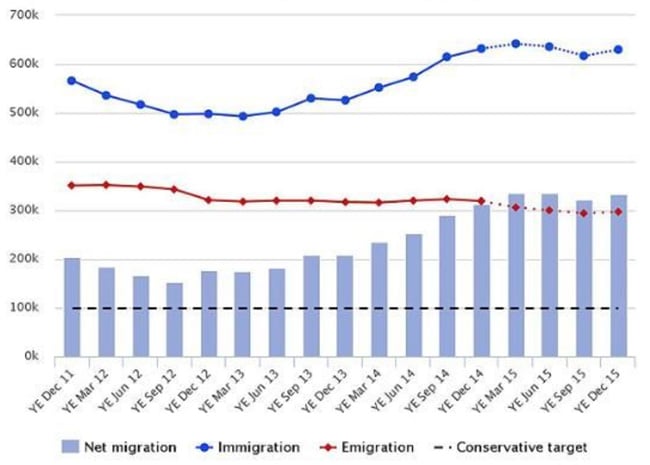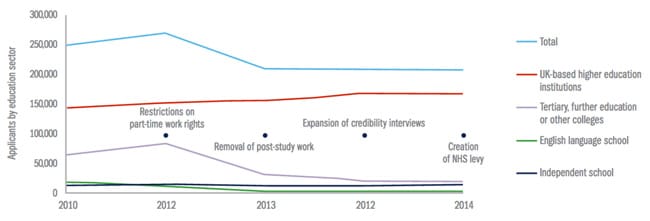Report: British PM orders new visa review
Reports have been swirling in recent weeks of a further immigration crackdown in the UK. Immigration remains a hot political question in British politics. And, in the wake of the 23 June "Brexit" referendum on European Union membership, Prime Minister Theresa May has reinforced her government’s commitment to reduce net migration to the UK to 100,000 people per year, from current levels of roughly 330,000 annually.

Review now underway
The speculation around further visa changes came to a head in late-August when government sources confirmed that the Prime Minister has directed Home Secretary Amber Rudd to prepare a set of new measures to tighten controls across all visa classes. The Home Office has claimed in the past that as many as one in five foreign students overstays their visas currently, and continues to live in Britain after the conclusion of their studies. Early speculation has it that among the options under consideration with respect to student visas are:
- constraints on how universities may market post-study work options in the UK;
- new measures to ensure that students do not overstay their visas and return to their home countries at the end of their studies; and
- tighter controls for students applying to attend lower-ranking institutions.
The actual scope and decisions arising from the review remain to be seen. The debate around international student mobility in the UK, however, is likely to continue beyond the frame of the current process. Mostafa Rajaai, international officer for the National Union of Students, said in a recent interview with The Independent: "Thanks to Theresa May's approach to international students while she was in charge of the Home Office, we have witnessed, for the first time in 30 years, a drop in the number of international students coming to the UK. This is while the number of internationally mobile students has been rising year on year…As it stands, the British student visa regime is one of the toughest and least welcoming in the world. By tightening it further, the Higher Education sector will lose out on hundreds of thousands of international students choosing other countries over the UK."
"International students clearly shouldn’t be part of the conversation about migration. They benefit our universities and economy, and they don’t generally hang about if they can’t find gainful employment afterwards," adds Study Group’s Managing Director for UK and Europe, James Pitman.
Writing recently in The Guardian, he said, "The visa system should be rigorous, but not punishing, and must be guided by best practice elsewhere. Students should be free to undertake work alongside their studies and given time to fill valuable roles in industry after graduation…Above all, both EU and international students should be treated as any other contributors to our expansive, multicultural society. With the institutions and resources we have, we should be leading this market, not lagging behind."
A June 2016 study from Parthenon-EY further expands the debate by trying to put a price tag on the UK’s declining market share in recent years, a decline that can largely be traced to the tightening of visa controls and other more restrictive policies introduced over the last five years.

















